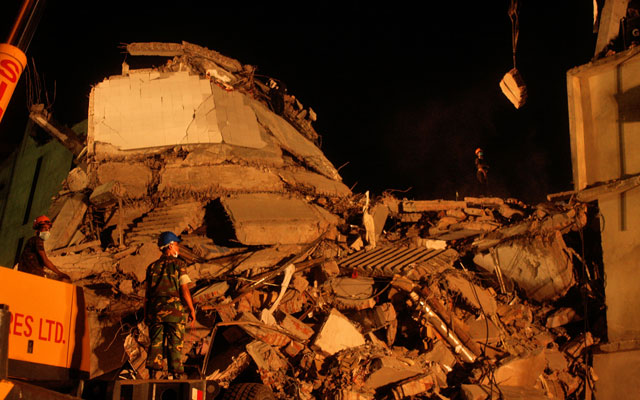In 1971, “George Harrison and Friends” took the stage at Madison Square Garden to raise funds for Bangladesh — a new nation plagued by disease, famine and unrest. Most Americans had not even heard of Bangladesh, but they responded to the need.
On the night of the Concert for Bangladesh 40,000 packed the Garden. The subsequent album and movie helped raise over $12 million.
Since then, most Americans have not given the country much thought. But Bangladesh is back in the news again, and — once again — the news is not good.
Violence and turmoil have reached levels unknown since the 1971 war that birthed the nation. At the heart of the tumult are controversies sparked by upcoming national elections.
Prime Minister Sheikh Hasina has been conducting a virulent anti-Islamist campaign. The government has banned the Jamaat-e-Islami political party, and Hasina pushed through the trial and execution of a key JI leader who was accused of committing war crimes during the Bangladesh war for independence.
All this has outraged the main opposition party — the Bangladesh National Party — which, while not an Islamist group per se, allies with the JI. The BNP has announced it will boycott the January election, unless the government steps down and lets a neutral caretaker regime conduct the polls. In sum, the entire democratic process is in jeopardy.
That’s a big deal. Bangladesh is the fourth-largest Muslim-majority nation in the world. If freedom fails there, it would be a serious setback for the cause of freedom worldwide. And the post-election turmoil would only exacerbate tensions in an already troubled part of the world.
Islamism is a political ideology which, under the banner of religion, claims the right to crush individual rights. As such, it is the enemy of political liberty and the antithesis of democracy. When put fully into practice, Islamist regimes have often served as breeding grounds and state sponsors of terrorism.
Consequently, the government in Bangladesh is right to go on the offensive against Islamism. However, how it goes about it matters greatly. The government must be careful not to kill democracy in the process of trying to save it.
How will the U.S. deal with the situation in Bangladesh? That, too, may be problematic. The Obama administration to date has simply equated elections with democracy. But elections aren’t freedom. They offer the promise of freedom, but that promise can be betrayed.
Case point: Iran. Tehran holds elections all the time. They are meaningless — merely giving the oppressed people a chance to pick a new face from the government that oppresses them. Yet, the White House naively interpreted the election of a new “moderate-sounding” president as a signal that Iran wanted to broker a nuclear deal. This despite that fact that the real power brokers in Iran still want the bomb.
Likewise, in Egypt, the U.S. watched indifferently as an “elected” Muslim Brotherhood government tried to turn convert a democratic election into a “one man, one vote, one time” regime. After the Egyptian military ousted the Islamists to save the emergent democratic process, the U.S. then tried to isolate the military regime — a policy that neither advances the cause of freedom nor improves ties with an important strategic partner.
The U.S. now must make a critical decision about how it will respond to the situation in Bangladesh. Washington can’t be sanguine about the prime minister’s policies because they put the democratic process at risk and may well drive more people to rally to extremists and support Islamist terrorism.
If the White House gets it wrong on this one, too, it will be strike three in its efforts to support freedom against Islamism.
Originally appeared in the Washington Examiner


























